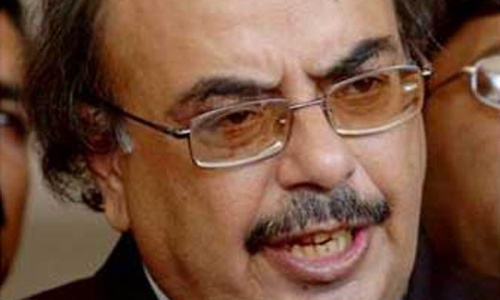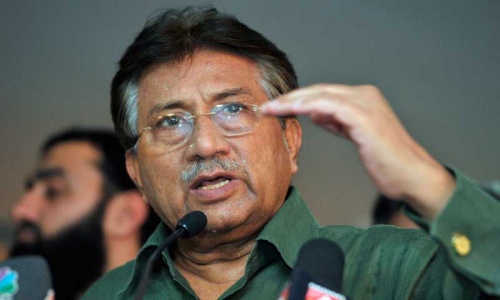ISLAMABAD, Nov 20: Although the government is quite confident that the three-judge special court constituted to prosecute former president retired Gen Pervez Musharraf on treason charges will complete the trial as soon as possible, the investigating committee has yet to come up with concrete evidence against him.
“No concrete evidence has yet been collected to implicate Gen Musharraf,” a member of the four-man investigation team set up by the government on June 27 to gather evidence against the former military ruler confided to a group of reporters.
The federal government has already notified the constitution of the special court under Section 4 of the Criminal Law Amendment (Special Courts) Act 1976 to try Gen Musharraf under Article 6 of the Constitution dealing with high treason.
The court comprises Justice Faisal Arab of the Sindh High Court, Justice Syeda Tahira Safdar of the Balochistan High Court and Justice Yawar Ali of the Lahore High Court.
Without divulging the names, the member said the committee had interviewed a few people, but generally it was not getting any assistance from the quarters concerned in the collection of evidence despite repeated requests.
But he said the situation would change when a complaint would be filed in the special court. “We would then be in a position to get warrants or directions from the special court for summoning the people who have evidence but were not cooperating at the earlier stage of investigation,” he said.
Meanwhile, a source close to Gen Musharraf’s circle told Dawn that the former president might request senior lawyer Sharifuddin Pirzada to lead his legal team and defend him in the special court.
Mr Pirzada is said to be the architect of almost all provisional constitution orders (PCO) issued after military coups in the past, particularly after the Oct 12, 1999, takeover of the Nawaz Sharif government by Gen Musharraf as well as the Nov 3, 2007, emergency in which the Constitution was suspended and superior court judges were detained.
A senior law officer told Dawn that the special court would start functioning soon after the filing of a statement by the interior secretary and complete the proceedings as early as possible.
Under a statutory regulatory order issued in 1994, the interior secretary has been designated as a focal person to lodge a final complaint under Article 6 of the Constitution in the special court.
The trial will be held under the High Treason (Punishment) Act 1973, which suggests death or imprisonment for life as the punishment for high treason defined in Article 6 of the Constitution.
The second stage will be the appointment of a registrar for the special court by the government after consulting its head, who is Justice Faisal Arab in this case. Gen Musharraf can be arrested, if necessary, after the special court issues a notice to him.
It is believed that Attorney General Muneer A. Malik is the person who had advised the law ministry to request the Chief Justice of Pakistan to suggest the judges’ names for the special court in view of the fact that there were five high courts and it would be difficult for the government to nominate three of the five judges on its own.
The senior law officer was of the opinion that composition of the special court could not be changed after the issuance of a notification, even though objections were raised. Any change in this regard would be unconstitutional, he said.
“The objections being now raised against certain judges will have no effect and the government will not consider re-composition of the court,” he said after it was pointed out that the presiding judge, Justice Faisal Arab, was a direct victim of the actions taken by Gen Musharraf and had refused to take oath under the PCO while Justice Yawar Ali was a brother-in-law of retired Justice Khalilur Rehman Ramday.
APP adds: Attorney General Munir A. Malik said on Wednesday the government had strong evidence to try Gen Musharraf for treason.
Talking to reporters in the Supreme Court building, he said the sentence for violating Article 6 of the Constitution was either death or life imprisonment and the president was the only authority to pardon the convict.
He said Gen Musharraf could not get bail from any court, except the special court, in the treason case. He said the evidence would be provided to the Federal Investigation Agency, which could then arrest the former president any time.















































